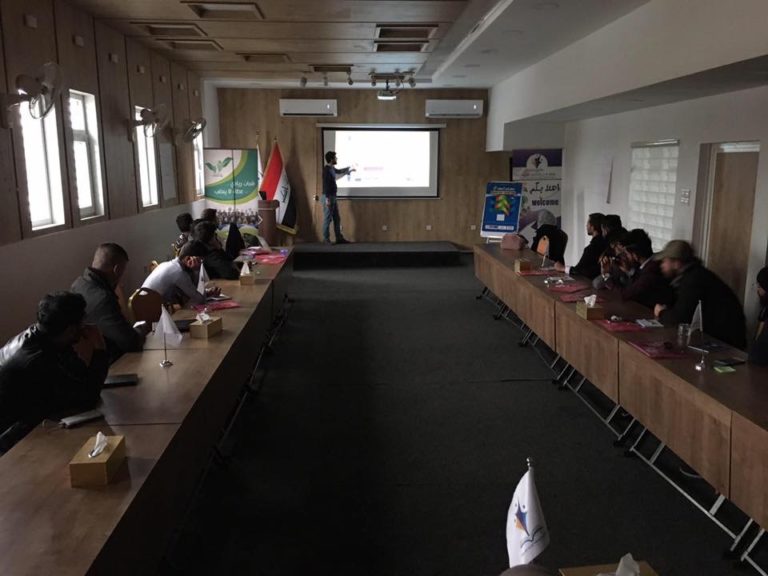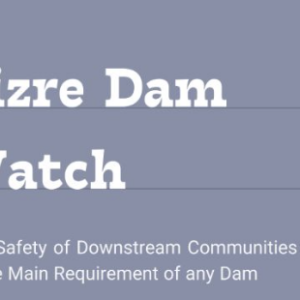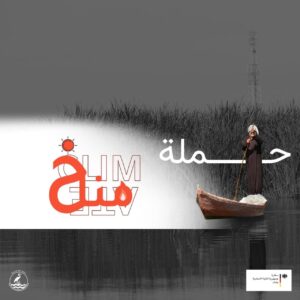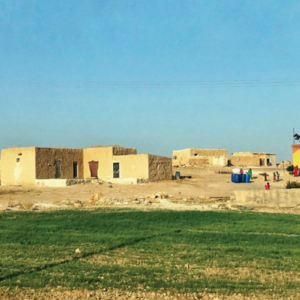The youth of Nineveh Governorate are preparing to launch a major environmental campaign to confront the dangers of pollution and the deterioration of the environment in their governorate. In this endeavor, the Humat Dijlah Association organized a specialized training on environmental defense mechanisms and the protection of water resources. The training, which was held in Mosul, involved 20 young men and women from different cities of Nineveh Governorate. The training, which continued for two days (7-8 February 2020) addressed the most prominent principles and strategies for ensuring environmental protection, avoiding all forms of pollution and mechanisms needed for organizing environmental advocacy effective campaigns.
Mosul, which suffered under the occupation of Daesh from 2014 and 2017, endured almost comprehensive destruction of its infrastructure and service facilities. Additionally, the occupation critically damaged many elements of the environment, upsetting the natural balance and the systems in place to treat pollutants so as to prevent them from being released into the ecosystem. The war that took place to liberate the city affected the complex environment there and increased pollution in the air, water and soil. All this is now clearly showing its impact on residents.
During the horrifying three years under Deash’s control, many oil related industries were severely damaged: the destruction of crude oil refineries, wellheads, and pipelines caused leaks of heavy chemicals and the emission of toxic gases, and both sabotage or neglect affected heavy water and wastewater treatment plants. All this caused many to go out of service altogether and this in turn led to the leaking of polluted water into nearby rivers or directly into the soil where it mixed with groundwater. And the matter does not stop there, as the years of siege, displacement, and war caused thousands of hectares of cultivated farm land to die. The green cover of the governorate will be difficult to revitalize in a way that can overcome the massive fires caused by Daesh which continued for months during the battles for liberation and before. The case of Qayyarah is representative — toxins in the soil and sediment due to acid rain carried pollutants into rivers, causing water toxification as well.[1]
“Burning oil wells and severely damaged industrial sites attracted the eyes of the media, who displayed the horrors of war toxins on live broadcasts, yet as soon as the fires subsided, attention to the less dramatic, but equally devastating consequences for residents’ health from the pollution caused by the conflict faded. Although journalists have packed up and gone elsewhere, residents in the areas now overwhelmed with toxic residues from the war, and they must confront the environmental legacy of conflict themselves. Air pollution from the burning oil wells, soot spread over vast areas, oil from massive spills covers the soil, affecting livestock and groundwater.” This description appeared in a report from the Pax Peace organization,[2] issued during the meetings of the United Nations Environment Assembly, held in late 2017 in the Kenyan capital Nairobi.
The journalist, Rehab Abdel Mohsen, wrote a report entitled “Living under a black sky/“ which concluded that the wars that lasted for three years and culminated in the evacuation of Daesh militants from Nineveh Governorate, left a deep imprint on the environment there. Indeed, it is so deep that it will inevitably hinder any efforts to rebuild, and in the long run it will be devastating for societies both large-scale and individual neighborhoods. The impact will be dire in both health and economic terms. The youth of Mosul and Nineveh Governorate feel the magnitude of the danger now threatening their city. After all, most of them lived through the scourge of war and many of them witnessed tragic scenes of massive destruction that took place in their homeland. Now they are determined to create a different and
better reality. These youth are determined to repair what was destroyed by the war, they aim to restore the environment and repair their region’s ecosystem. This environmental reconstruction must be at the top of their priorities and they will consider the allocation of investments carefully so as to make sure that money is directed at the environment which will then serve as a kind of launchpad to help other sectors.
The Mosul youth who took part in the training suggested organizing campaigns that seek to spread and raise the level of environmental awareness, creating a “green” culture among the residents of Nineveh Governorate where the campaigns will be implemented. All this will be done with the Humat Dijlah Association and with the assistance of the Water Protectors Network in Iraq.

This training was carried out in cooperation with Save the Tigris and the Iraqi Marshes Campaign, with extra support from the Information Center for Research and Development, and the European Union and the French CCFD Foundation, all within the framework of the Iraqi Social Forum.
Ali Al-Karkhi
[1] For more on this extensive environmental damage, see The environment is calling for help from the battle for Mosul





Leave a Reply